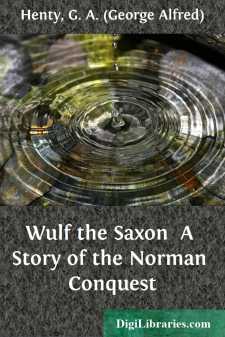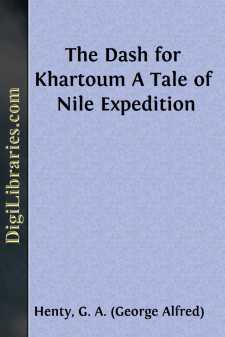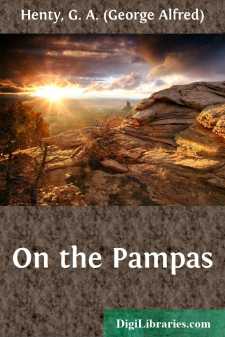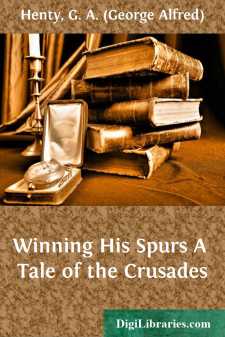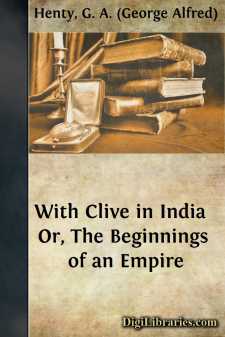Categories
- Antiques & Collectibles 13
- Architecture 36
- Art 48
- Bibles 22
- Biography & Autobiography 813
- Body, Mind & Spirit 142
- Business & Economics 28
- Children's Books 15
- Children's Fiction 12
- Computers 4
- Cooking 94
- Crafts & Hobbies 4
- Drama 346
- Education 46
- Family & Relationships 57
- Fiction 11828
- Games 19
- Gardening 17
- Health & Fitness 34
- History 1377
- House & Home 1
- Humor 147
- Juvenile Fiction 1873
- Juvenile Nonfiction 202
- Language Arts & Disciplines 88
- Law 16
- Literary Collections 686
- Literary Criticism 179
- Mathematics 13
- Medical 41
- Music 40
- Nature 179
- Non-Classifiable 1768
- Performing Arts 7
- Periodicals 1453
- Philosophy 64
- Photography 2
- Poetry 896
- Political Science 203
- Psychology 42
- Reference 154
- Religion 513
- Science 126
- Self-Help 84
- Social Science 81
- Sports & Recreation 34
- Study Aids 3
- Technology & Engineering 59
- Transportation 23
- Travel 463
- True Crime 29
Wulf the Saxon A Story of the Norman Conquest
Description:
Excerpt
CHAPTER I.
A QUARREL.
The great Abbey of Westminster was approaching its completion; an army of masons and labourers swarmed like bees upon and around it, and although differing widely in its massive architecture, with round Saxon windows and arches, from the edifice that was two or three generations later to be reared in its place,—to serve as a still more fitting tomb for the ashes of its pious founder,—it was a stately abbey, rivalling the most famous of the English fanes of the period.
From his palace hard by King Edward had watched with the deepest interest the erection of the minster that was the dearest object of his life. The King was surrounded by Normans, the people among whom he had lived until called from his retirement to ascend the throne of England, and whom he loved far better than those over whom he reigned. He himself still lived almost the life of a recluse. He was sincerely anxious for the good of his people, but took small pains to ensure it, his life being largely passed in religious devotions, and in watching over the rise of the abbey he had founded.
A town had risen around minster and palace, and here the workmen employed found their lodgings, while craftsmen of all descriptions administered to the wants both of these and of the nobles of Edward's court.
From one of the side doors of the palace a page, some fifteen or sixteen years of age, ran down the steps in haste. He was evidently a Saxon by his fair hair and fresh complexion, and any observer of the time would have seen that he must, therefore, be in the employment of Earl Harold, the great minister, who had for many years virtually ruled England in the name of its king.
The young page was strongly and sturdily built. His garb was an English one, but with some admixture of Norman fashions. He wore tightly-fitting leg coverings, a garment somewhat resembling a blouse of blue cloth girded in by a belt at the waist, and falling in folds to the knee. Over his shoulders hung a short mantle of orange colour with a hood. On his head was a cap with a wide brim that was turned up closely behind, and projected in a pointed shovel shape in front. In his belt was a small dagger. He wore shoes of light yellow leather fastened by bands over the insteps. As he ran down the steps of the palace he came into sharp contact with another page who had just turned the corner of the street.
"I crave your pardon, Walter Fitz-Urse," he said hurriedly, "but I was in haste and saw you not."
The other lad was as clearly Norman as the speaker was Saxon. He was perhaps a year the senior in point of age, and taller by half a head, but was of slighter build. The expression of his face differed as widely from that of the Saxon as did his swarthy complexion and dark hair, for while the latter face wore a frank and pleasant expression, that of the Norman was haughty and arrogant.
"You did it on purpose," he said angrily, "and were we not under the shadow of the palace I would chastise you as you deserve."
The smile died suddenly out from the Saxon's face....


